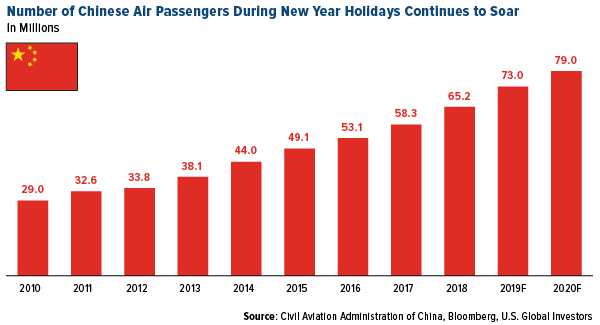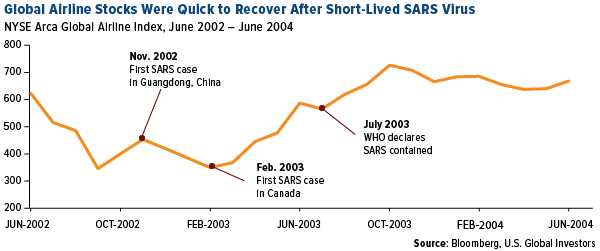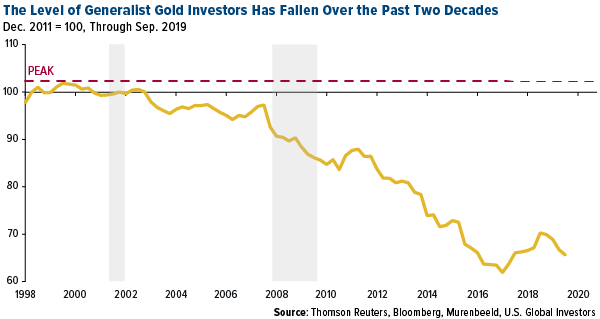New Beginnings With The Year Of The Rat

Saturday marked the Chinese Lunar New Year, a time when as many as 400 million people ordinarily travel to visit family and go on vacation. Before the coronavirus struck, 3 billion trips were estimated to take place during the 16-day celebration, while some 79 million passengers were expected to take flights, up more than 8 percent from 73 million a year earlier. The new Daxing International Airport in Beijing was to handle nearly 2 million flights.
(Click on image to enlarge)

When I flew through Zurich to attend a crypto conference, I happened to see multiple kiosks and signs proclaiming “Happy Year of the Rat,” an indication of just how broad and far-reaching China’s influence is—as well as how quickly viruses can spread in today’s uber-connected world.
If investors are seeking a precedent to compare to the recent coronavirus, they need only look bad 10 years, when the H1N1 Swine flu made it the U.S. via Mexico. An estimated half a million people died as a result of the virus, 12,000 in the U.S. alone. Major U.S. carriers were impacted, with Delta Air Lines reporting between $125 million and $150 million in lost revenue, according to a note last week from Credit Suisse. But the virus was relatively short-lived, and the industry promptly recovered.
Before that, in 2003, was the SARS epidemic. Air traffic to China fell by nearly half year-over-year in the second quarter of that year, which may have had a negative impact on airline earnings. Credit Suisse points out it’s hard to estimate SARS’ impact on airlines since there was also the Iraq War, not mention a weak macro environment at the time. Again, airlines were quick to recover once the threat of the virus dissipated, and carriers were citing normalization of trends, including capacity growth, in the second half of 2003.
(Click on image to enlarge)

Chinese Gold Purchases Muted
The normally reliable Love Trade during China’s Lunar New Year has been impacted by the deadly coronavirus, which was first reported in the central Chinese city of Wuhan—population 11 million—but has since spread to other areas of the country, not to mention the U.S. Travel and spending, in general, have largely been restricted, with the Chinese government’s recent travel ban affecting as many as 35 million people. On Friday we even learned that Shanghai Disneyland has temporarily closed its doors in an effort to curb the outbreak.
Gold consumption in China, the world’s largest consumer of the yellow metal, fell 13 percent year-over-year in 2019, the China Gold Association announced last week, with sales of jewelry, gold bars, and coins falling sharply on higher prices.
What’s missing in the gold market today, as I told Kitco News’ Daniela Cambone at the Vancouver Resource Investment Conference earlier this month, is the generalist investor. Holdings in gold-backed ETFs hit a new record high at the end of last year, but according to a Murenbeeld presentation, generalists are increasingly not participating—a reverse scenario of what we’re seeing in cryptocurrencies.
(Click on image to enlarge)

Because it’s the first of the 12 zodiacs, the Year of the Rat is seen as a time of beginnings and renewals. That brings me hope, especially paired with the recent positive development in the U.S.-China trade war. To all of my friends and family, readers and shareholders, I want to wish you a Happy New Year!
Disclaimer:
The NYSE Arca Global Airline Index is a modified equal-dollar weighted index designed to measure the performance of highly capitalized and liquid ...
more



Yes, people don't realize the major toll this virus will have on businesses.